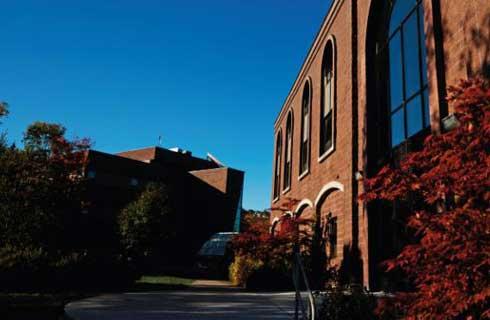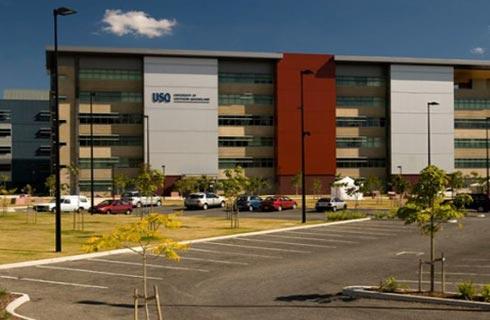理学士(荣誉)化学与神经科学
BSc (Hons) Chemistry and Neuroscience

学历文凭
Bachelor Degree with Honours

专业院系

开学时间

课程时长

课程学费

国际学生入学条件
30 points to include a Higher Level Chemistry at 6 or above.
ACCESS TO HE DIPLOMA REQUIREMENTS
Obtain Access to Higher Education Diploma with 122 UCAS Tariff points including a minimum of 30 Level 3 credits at Distinction. You must also have taken sufficient Chemistry credits, please contact us for advice.
IELTS - 6
TOEFL ibt - 79 (components - listening 19, reading 19, speaking 20, writing 19)
IDP—雅思考试联合主办方

雅思考试总分
6.0
- 雅思总分:6
- 托福网考总分:79
- 托福笔试总分:160
- 其他语言考试:Pearson Academic English - 50-57
CRICOS代码: BF11
申请截止日期: 请与IDP联系 以获取详细信息。
课程简介
Develop expertise in two interesting scientific subjects on our Chemistry and Neuroscience BSc and acquire a range of transferable skills and that will prepare you for a range of career opportunities.<br><br>From the technology we use to how we treat illnesses, chemistry is essential to our modern life and offers a wide variety of career opportunities in many fields from pharmaceuticals and food technology to forensics and teaching. You will also consider the ways in which chemistry is applied to sustainable development and the environment and examine the political, social and economic impacts and explore topics like nuclear chemistry and energy, geochemistry, health and toxicology and green chemistry. Particular attention is paid to building your practical skills and you will have access to various types of research standard equipment you are likely to use within your career - such as ultra-violet visible spectroscopy which is used to follow the rate of reactions of molecules that contain chromophores.<br><br>Neuroscience is a vibrant and emerging discipline that explores the brain, from how it enables us to sense and move through our environment, to degeneration in health and in disease. With over 600 types of neurological conditions currently identified (NHS England), understanding how the brain and nervous system work is integral to the future of human health and well-being. You will explore a mixture of modules that will provide you with a grounding in basic biological techniques, an introduction to the core concepts of neuroscience and the practical skills required for a career within the field. You will take laboratory classes to develop practical, analytical, observational and interpretative skills.<br><br>Key themes within Neuroscience include how the brain develops, the mechanisms underlying learning and memory, how drugs affect the nervous system, the anatomy of the human and animal nervous systems, and how electrical activity in the brain works to control function.<br><br>You will gain a solid grounding in the underpinning of the theory of chemistry and build your multidisciplinary skills and knowledge that are used by Neuroscientists (typically research scientists) in their quest to design and carry out experiments to understand more about the brain and nervous system. Practical experience will be gained in Keele's state-of-the-art laboratories and you will have the opportunity to tailor your degree to your specific interests and careers aspirations by choosing from a range of optional modules in your final year.
相关申请
 预科
预科 奖学金
奖学金 实习机会
实习机会 在校学习
在校学习 跨境学习
跨境学习 校园授课-线上开始
校园授课-线上开始 在线/远程学习
在线/远程学习
开学时间&学费
学费信息仅供参考,请与IDP联系以获取详细信息
| 开学时间 | 时长 | 学费 | 地点 |
|---|
学校排名

世界排名501
数据源:
泰晤士高等教育世界大学排名
关于基尔大学

基尔大学是一所基于校园的大学,其学生课程满意度在英格兰排名并列第一(卫报2019年大学排行榜)。它位于莱姆河畔纽卡斯尔(Newcastle-under-Lyme)的大学城附近,靠近热闹的特伦特河畔斯托克市(Stoke-on-Trent),是学生的热门选择。基尔大学为拥有英国最大的单一校园而骄傲,大学拥有超过2.5平方公里的美丽乡村。基尔大学为学生提供了从基础水平到研究生研究水平的广泛课程选择,学科范围从环境科学到市场营销和媒体。大学拥有很高的就业率,在毕业后的六个月内96%的学生找到工作。基尔大学的学生来自120多个不同国家,构成了该大学的国际学生社区。这些学生努力让所有学生成为全球公民。该大学不仅是TEF金牌机构,目前还拥有200多个俱乐部和社团,大学鼓励学生参与充满活力的校园生活。这所自给自足的大学提供令人印象深刻的设施,包括一个让学生使用学习材料的24/7全天候图书馆,还有各种食品商店、健身房、舞蹈室、运动场和球场。它还为学生提供长期的笔记本电脑贷款,同时大学举办每周一次的农贸市场,并设有几家校园商店、学生会商店、邮局、银行、药房、医生诊所和书店。基尔大学为学生提供出色的残疾学生服务、毕业生服务和国际学生支持。还为所有人提供绝佳的职业建议、财务支持和保密咨询服务。有家人的学生还可以使用专门建造的托儿所。
本校相关课程

社会工作(荣誉)文学士学位
学历文凭
Bachelor Degree with Honours
开学日期
课程费用总额


理学士(荣誉)理学士
学历文凭
Bachelor Degree
开学日期
课程费用总额


MPharm(荣誉)药房
学历文凭
Bachelor Degree
开学日期
课程费用总额


MBChB(荣誉)医学
学历文凭
Bachelor Degree
开学日期
课程费用总额


理学士(荣誉)数学
学历文凭
Bachelor Degree with Honours
开学日期
课程费用总额


荣誉管理学士学位
学历文凭
Bachelor Degree with Honours
开学日期
课程费用总额

其他相关课程

化学哲学博士(研究部)-化学
 悉尼新南威尔士大学
悉尼新南威尔士大学学历文凭
Ph.D.
开学日期
课程费用总额


Graduate Diploma of Laboratory Quality Analysis and Management
 麦考瑞大学
麦考瑞大学泰晤士高等教育世界大学排名:167
学历文凭
Graduate Diploma
开学日期
课程费用总额


化学科学硕士
 乐卓博大学
乐卓博大学泰晤士高等教育世界大学排名:267
学历文凭
Masters Degree (Coursework)
开学日期
课程费用总额


哲学硕士(化学)
 科廷大学
科廷大学泰晤士高等教育世界大学排名:256
学历文凭
Masters Degree (Research)
开学日期
课程费用总额


哲学博士(化学)
 纽卡斯尔大学
纽卡斯尔大学学历文凭
Ph.D.
开学日期
课程费用总额


化学理学学士
 莫道克大学
莫道克大学泰晤士高等教育世界大学排名:438
学历文凭
Bachelor Degree
开学日期
课程费用总额










 英国
英国